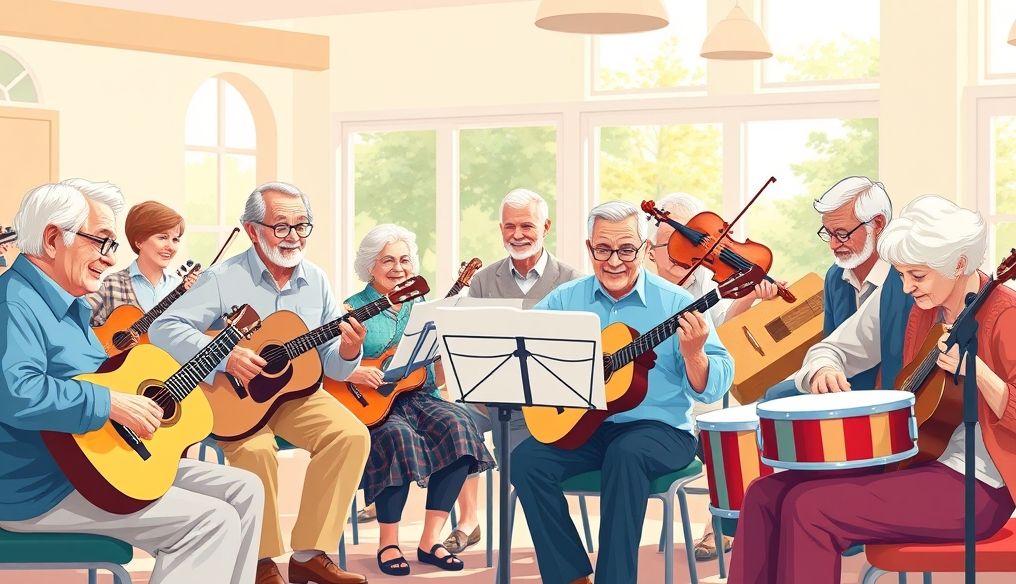Is it Too Late? Playing a Musical Instrument at an Older Age
We often hear the phrase "it's too late" when it comes to learning a new skill, especially if it requires fine motor coordination like playing a musical instrument. But is this true? Is learning to play really impossible after a certain age? The good news is: No!
Why Do Some Believe Learning is Harder at an Older Age?
- Neuroplasticity: Some believe that brain plasticity decreases with age, making it more difficult to acquire new skills.
- Time and Commitment: Older adults often have other commitments such as work or family, limiting the time available for practice.
- Fear of Failure: Some may worry about not being able to keep up with younger people or making rapid progress.
What Proves the Possibility of Learning at an Older Age?
Fortunately, science supports the idea that the brain retains its ability to learn and adapt throughout life, a property known as neuroplasticity. This means you are able to form new neural pathways and strengthen existing connections, even at an advanced age.
Benefits of Learning to Play a Musical Instrument at an Older Age
In addition to the joy of learning something new, there are many health and psychological benefits to learning to play at an older age:
- Improved Memory and Concentration: Playing requires remembering musical notes and rhythms, which enhances memory and concentration.
- Reduced Stress and Anxiety: Playing can be a great way to express yourself and relieve stress and anxiety.
- Improved Motor Coordination: Playing requires precise coordination between hands and eyes, which improves motor coordination.
- Enhanced Self-Confidence: Achieving progress in playing boosts self-confidence and a sense of accomplishment.
- Social Connection: Joining a band or playing group can provide opportunities for social connection and making new friends.
Tips for Starting to Learn to Play at an Older Age
- Choose the Right Instrument: Start with a relatively easy-to-learn instrument, such as the ukulele or piano.
- Find a Good Teacher: A teacher can provide you with the guidance and support needed to make rapid progress.
- Be Patient and Persistent: Don't expect to become a professional overnight. Learning to play takes time and effort.
- Set Aside Regular Practice Time: Even practicing for 15-30 minutes a day can make a big difference.
- Enjoy the Process: Learning to play should be fun! Don't pressure yourself and try to enjoy every moment.
Studies and Research Supporting the Idea
Numerous studies have shown that learning music can improve cognitive functions in older adults. For example, a study published in the "Journal of Neuroscience" found that learning to play the piano for six months improved working memory and processing speed in participants aged 60 to 85 years.
Inspiring Stories
There are many inspiring stories of people who started learning to play at an older age and achieved great success. For example, "Ann" started learning to play the violin at the age of sixty, and now she plays in a local orchestra. "John" started learning to play the guitar at the age of sixty-five, and now he plays in local bars and cafes.
Challenges and How to Overcome Them
You may face some challenges when learning to play at an older age, such as:
- Stiff Joints: Warm-up exercises can be practiced before playing to help relieve stiff joints.
- Poor Vision: Magnifiers or large musical notes can be used to help with vision.
- Hearing Loss: Headphones or amplifiers can be used to help with hearing.
Conclusion
There is no age limit to learning to play a musical instrument. If you dream of learning to play, don't let age stand in your way. Start today and enjoy the journey!
Note: Consult your doctor before starting any new training program, especially if you have any health problems.




